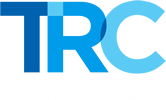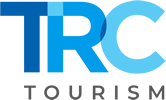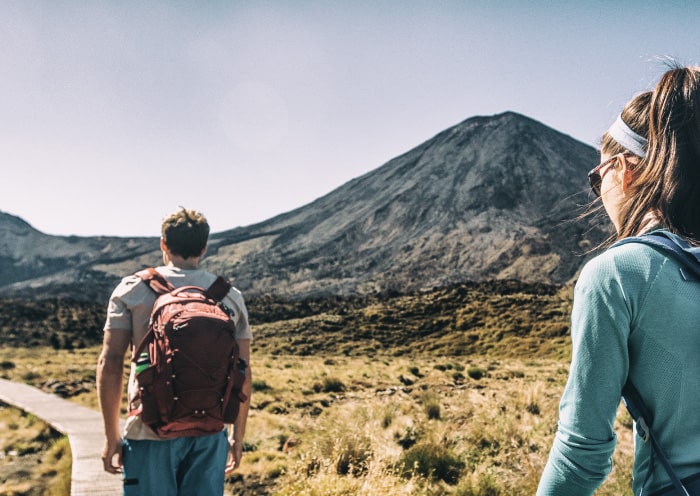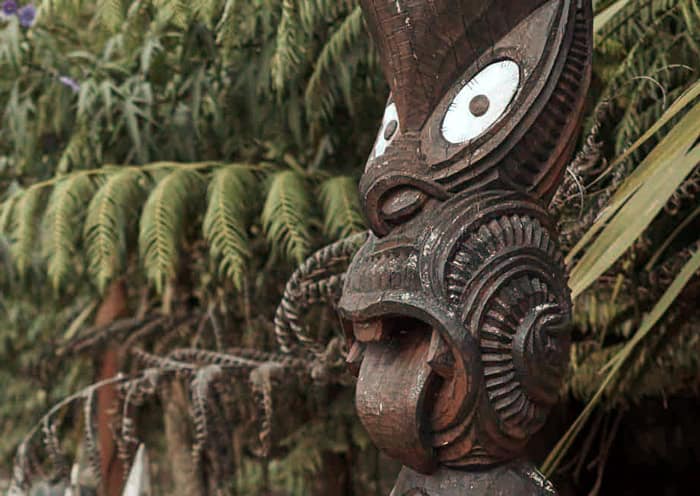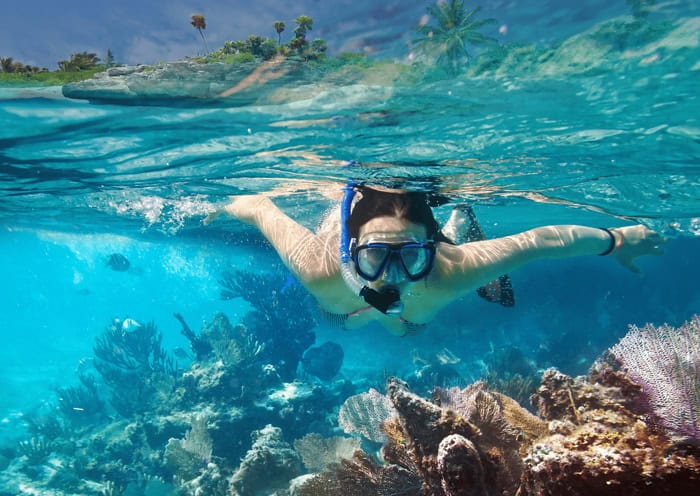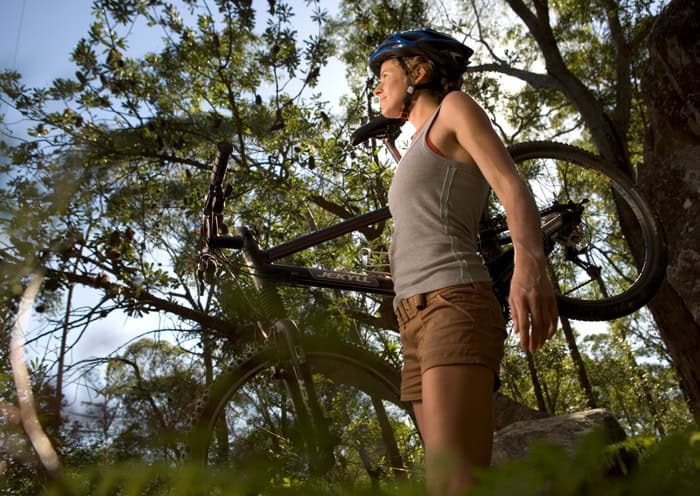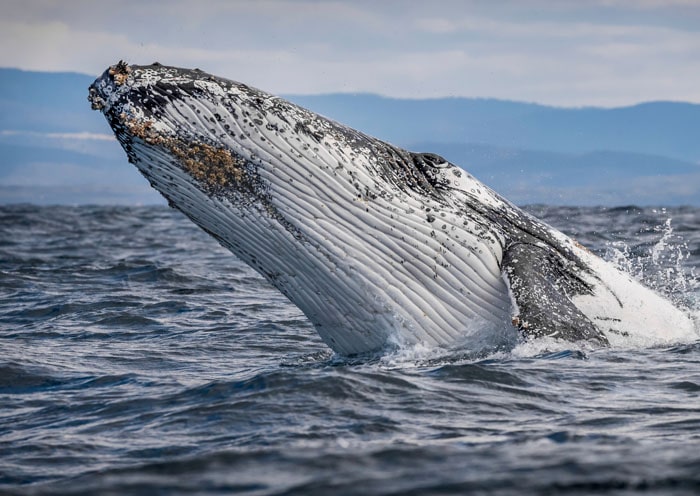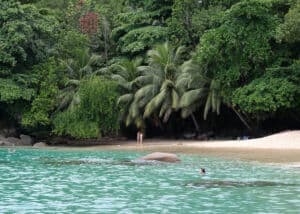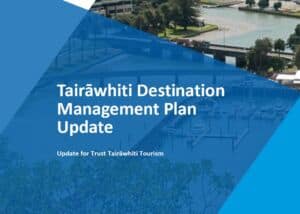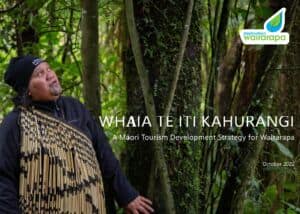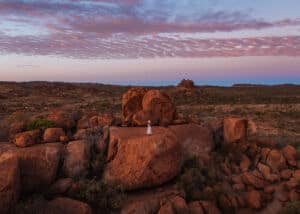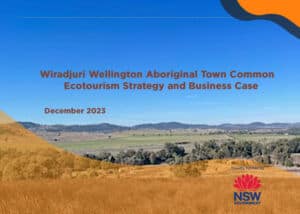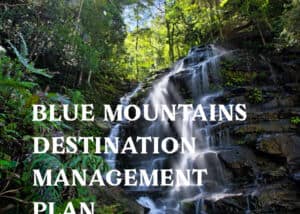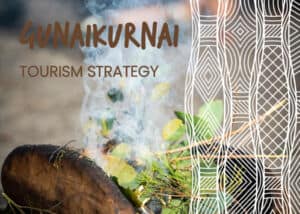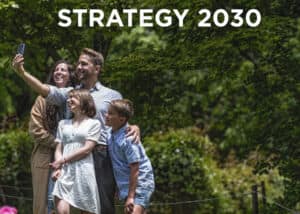NEW ZEALAND
SPECIFIC SERVICES
Destination Management Plan Implementation
…enabling sector capability.
You have the plan, it’s time to action it!
TRC Tourism has a team on hand to support RTOs, local government, businesses, communities, interest groups, iwi, hapū and marae to implement initiatives and programmes identified within Destination Management Plans (DMP).
Our team can support you to kick-start implementation and help move the strategic priorities contained in the DMP forward, making them a reality on the ground, and thereby working towards achieving the vision and goals of the DMP.
While each DMP focuses on the issues and opportunities relevant to the respective region, outcomes will be focussed on delivering benefits across the four areas of wellbeing (social, cultural, environmental, economic).
An overriding priority for regions is maintaining the social licence for tourism to operate within local communities. Building regenerative tourism capability – tourism that gives back to the community and the environment is central to this.
The identified projects and programmes for action tend to fall within the areas of collaboration and partnerships, building industry capability and resilience, product/experience and service development, monitoring and managing tourism related resources and infrastructure, and targeted marketing.
Our focus is to empower you and your communities of interest to deliver practical and achievable solutions.
In response to this we have designed a range of services that can be mixed and matched or adapted and customised to best deliver toward achieving DMP outcomes.

Sustainable Pricing and Packaging Workshop
With Destination Management Plans either finalised or almost in the bag we know your attention is now turning to implementation and in many cases experience development and operator business capability has been highlighted as a priority workstream.
Mid 2022 TRC delivered a pilot project for Qualmark New Zealand to help build the capability of operators to sustainably price their products and to confidently collaborate with others to package and sell experiences that can be promoted through regional and national campaigns. The workshops were delivered alongside RTO/EDA teams to ensure destination positioning was reinforced and regional cooperation was fostered.
The regions who participated in the pilot project found the experience highly valuable saying:
“Workshop generated good shared understanding of the benefits of packaging for businesses as well as the region” … “Turned on lots of lightbulbs” … “The way the material was delivered was great, informal, anecdotes, good examples”
The participating operators also found it worthwhile saying:
“The workshop definitely changed some of my incorrect preconceived ideas about what a package consists of. “…“I found the workshop a good place from which to view our pricing and relationships with those who sell our product. From here we are able to have a bit more confidence in how we will price and value our product and also how we will price and value the work” … “Did find it useful to rethink about pricing, and also to motivate me to look at packages. Networking with others useful and seeing what they are doing. Speakers were very good and kept you on focus.”
Thanks to Qualmark who funded the pilot programme development we can now cost effectively deliver this workshop in regions across NZ.
We just need an initial one hour of your time to discuss your priorities and plan logistics with you. Then your team takes care of the invites, venue etc. On the day workshop facilitators Kylie Ruwhiu-Karawana and Tracy Johnston fly/drive in, deliver the workshop and then spend an additional hour or two with you to debrief and identify the opportunities and actions to progress them.
From there we can leave it with you to work with operators, or, if you need a hand or want a third party to hold your operators to account, we can map out what that looks like. We can add on post workshop masterclasses that are delivered while we are in the region, or at a later date. Basically we can tailor make the support following the workshop to best achieve what your operators need, or leave you to it.
The workshop outcomes are to provide participants with:
- A clear understanding of how to sustainably price and value their products and services
- Consideration for how to present their product to align with and add value to the destination experience
- An understanding of what value add looks like and how to build that into the package so they are not dropping their prices to feel like they are delivering a ‘deal’
- Confidence to partner and package with others
- Tools to administratively and financially manage packaging partnerships
- Improved knowledge and confidence on working with third parties to promote and sell their products
If you would like to explore this further please email Tracy Johnston on tracy@trctourism.com.

Adding value to cultural, natural and historical regional assets (to appeal to visitors and locals)
Councils across New Zealand hold responsibility for a range of cultural, natural and historical facilities on behalf of ratepayers. These include historic buildings and sites, museums, gardens, parks, tracks and trails. Many of these assets have the potential to appeal to visitors as well as local residents.
TRC Tourism has been working with councils and Trusts across Australasia to optimise these assets to provide an improved user experience, providing additional financial, social, cultural, and environmental benefits. An example of this work is included in the project summaries below.
This has included, but is not limited to:
- Governance and Management models (eg Trust, lease, partnership/s, direct council management and operation, council controlled company)
- Funding, revenue generating options, and partnerships (with other government agencies, private sector, and not for profits)
- Assessing market potential
- Building value into non chargeable sites and places (eg through private sector concessions)
- Experience development (developing and interpreting the story, incorporating digital technology, partnerships with the arts sector, concessions for tours, events, food and beverage etc)
- Packaging with complementary attractions and services to add value
- Development of decision-making frameworks
- Visitor management models.
If your district, city, or region could benefit from assessing the future use of one or more of your natural or cultural assets, then please contact one of the team at TRC Tourism to discuss the options available.
A few examples of work of this nature are included below:
- Kāpiti Island Gateway Feasibility, Kāpiti Coast District Council
- Jondaryan Woolshed Operating Model Options Analysis, Toowoomba Regional Council Australia
- Brook Waimarama Sanctuary Visitor Experience Strategy for the Brook Waimarama Sanctuary Trust, owned by the Nelson City Council
- Sunshine Coast Nature Based Recreation Study for the Sunshine Coast Council (QLD, Australia)

Enabling iwi and mana whenua to achieve their aspirations for tourism
Treaty partners and mana whenua hold many of the stories and histories that bring the local landscapes to life. Regional leaders must understand what tourism aspirations iwi in their rohe have and to assist them to achieve those aspirations. Facilitating open and effective communication and collaboration to defining a united vision, create innovative solutions for working together and establishing a commitment towards making it happen.
TRC’s guiding principles for Māori engagement are an essential part of how we support this process, and these include:
- Adhering to the principles of the Treaty of Waitangi/Tiriti o Waitangi
- Engaging in purposeful consultation at the appropriate level within the iwi/ hapū/community to match the project and/or decision being made
- Beginning inclusive engagement early with commitment to continue to engage throughout the project
- Working with Māori to achieve co-designed solutions that incorporate their views and aspirations into project design and implementation
- Fostering collaborative and mutually respectful partnerships with Māori with a goal of long-term growth and positive impact in their communities
- Building relationship.

Tūmataiti, Tūmatanui/ Storytelling Development
When defining the stories that are shared with visitors, it is important to have a clear idea from the owners of those stories what elements can and cannot be shared – what is public and what is private. This process can be confronting but helps to form the basis of how iwi stories are told and what is acceptable to be shared by others. This gives confidence to the story owners and clear guidelines to others delivering the stories that they have what they need to do it respectfully. Our Tūmataiti, Tūmatanui process allows iwi to visually identify what is able to be shared, and what is not. There are often conversations in this workshop around what can be and what should be shared, and helps to alleviate any concerns from members of the group. An additional layer of benefit from this process is the potential to identify elements of stories that might be gifted to RTOs/EDAs to assist in marketing the destination and solidifying their unique positioning.
The first part of the workshop will be to ensure everyone is aware of and comfortable with what the outcome is. Everyone must understand what it is they are there to define, stories/history that can be shared, and that these may be used for interpretive purposes or commercial experiences. There should also be an understanding of the authenticity spectrum, and that we do not need to share all things to ensure manuhiri have an authentic visitor experience. All attendees should feel that they can share their thoughts on these stories in a supportive environment. This will be managed quite actively by the facilitator to ensure the best outcomes. The outcome is an understanding of what can be shared, who can share them, and what is for iwi only.

Capacity Building, resourcing and mentoring
The TRC team are experienced practitioners who have been working in and alongside iwi, RTOs, Local Government, Tourism New Zealand and tourism experiences for many years.
TRC can provide capability building, resourcing and mentoring services, or just act as a sounding board to support RTO/EDA business units to manage their destination development delivery in response to their regional DMP.
This work might include:
- Navigating and planning the implementation of DMP workstreams and projects
- Preparing feasibility assessments and business cases for new projects, infrastructure or services
- Sector plans or visitor journey mapping
- Strategic destination marketing planning to build your regional brand and positioning.
TRC can also assist with designing new partnership programmes to leverage a collaborative response to destination positioning, destination management, experience development, itinerary and driving route development, and collaborative marketing.

Positioning with purpose
Many DMPs will have a workstream of fostering collaboration of experiences and service providers to enhance the visitor offer and derive the maximum social, cultural, environmental and economic benefit back into the broader community. This will allow the region to build on destination positioning, and increase the authenticity and value proposition that enables visitors to engage more with the local community and environment.
TRC can facilitate group workshops and mentoring to support a number of outcomes that:
- Encourage cooperative experience development and partnerships to enable cross promotion of businesses and greater engagement with the travel distribution channel, providing easy market wins
- Determine how businesses who engage with visitors can individually and collectively build the regions social licence to operate through actions that give back to their local community and environment and how to build this into their experience and brand
- Equip businesses with the capability to clearly integrate purpose into their visitor facing experiences and services and both individually and collectively leverage this to position their products and the destination.
Group workshops can be followed by mentoring of selected businesses with the greatest potential, that show commitment and have the capacity to bring the new opportunities to fruition. The number of participants, number of workshops and mentoring timelines are tailored depending on an individual region’s needs.
Individual operators will benefit from this approach, and it will ensure that new and existing experiences support the broader positioning and strategic efforts of the RTO or Council, and drive regional outcomes aligned to the wellbeing framework.

Sustainable Product Development/Visitor Experience Optimisation
TRC understands that the participants involved in delivering experiences and services will differ greatly in terms of their business type, longevity, level of business experience and knowledge, motivations, needs, goals and operating models.
We have developed pathways catered towards new entries into the visitor industry. We have also developed pathways for those who are already working well and are seeking to add value, diversify, become more sustainable, move towards a regenerative business model, and develop better resilience. Our development pathways follow the Qualmark framework to ensure accreditation and best business practice has been employed. We have supported operators through their Qualmark endorsement journeys and have helped operators launch their newly endorsed experiences to the travel trade.
Start-Up, Scale-Up, Power-Up
Pathway One: Start-Up. The outcomes for each entity on this pathway are:
- Validate customer demand and opportunity
- Visitor experience mapped out
- Clear expectations outlined and plan in place to ensure required business structure, resourcing and organisational capability to successfully deliver visitor experience
- Sales and marketing plan in place
- Understanding of what is required to successfully achieve Qualmark Sustainable Tourism Business Award (including social, environmental, economic, health, safety, and wellness criteria).
Pathway Two: Scale-Up. The outcomes for each entity on this pathway are:
- Visitor experience assessment completed and action plan for enhancements identified
- Business plan, capability, pricing, sales and marketing reviewed and recommendations for improvement outlined
- Successfully achieve Qualmark Sustainable Tourism Business Award (including social, environmental, economic, health, safety, and wellness criteria)
- Trade resources in place to support engagement with travel sellers.
Pathway Three: Power-Up. The outcomes for each entity on this pathway are:
- Review business capability and capacity and provide recommendations to improve resiliency and enable growth in a sustainable manner
- Experience audit completed with recommendations for new product and/or enhancement/extensions
- Review of customer base with recommendations for potential diversification
- Potential packaging/partnership opportunities identified
- Recommendations of focus areas to improve Qualmark Sustainable Tourism Business Award (including social, environmental, economic, health, safety, and wellness criteria).

REGIONAL BUSINESS PARTNER NZ
TRC offers a service registered with the RBP. The Regional Business Partner (RBP) network connects New Zealand businesses with local people and knowledge that can support their growth ambitions. Businesses consult with RBP Growth Advisors to formulate an action plan and, in some cases, can access subsidised business capability services. Through the RBP, TRC can provide quality advice and planning to help grow your tourism business. Find out more by visiting www.regionalbusinesspartners.co.nz
The following two services are visible and available through the Regional Business Partner Network for Growth Advisors to recommend to businesses.
These services are designed to assist operators who are just starting their journey into tourism, and those who are looking for an opportunity to scale up their business and maximise its potential.
TESTIMONIALS
Gippsland Destination Management Plan
Janet and the TRC team did a great job with the Gippsland Destination Management Plan and I would recommend them to any regional tourism organisation.
Kokoda Track Maintenance Program and Operations Manual
The TRC team mobilised rapidly to PNG to assess and repair Kokoda Track bridges severely damaged in the very heavy wet season of last year being choppered into the remote rugged terrain of the Track. Working in very well with The Kokoda Track Authority Rangers, Kokoda Initiative and local communities their efforts and skill contributed greatly to the Kokoda Track being ready for the 2019 trekking season. Remote communities also benefited from being reconnected across the often treacherous river crossings. TRC also helped build the capacities of The Kokoda Track Authority Rangers and local communities to explore ways for future sustainable bridge building and general track maintenance works. The resultant Track Operations Manual produced by TRC is expected to be a valuable guide for future Kokoda Track works.
Queenstown Trails for the future 2015-2025
From the outset the TRC team were responsive, intelligent, forward thinking and always available. The Queenstown Trails Trust worked with the TRC team in 2015 to craft a 10 Year Strategic Plan. The nature of our business involves very important stakeholders, great vision and many face to face meetings to form our plan. . The result of this partnership being a very robust and well thought out plan that we are proud to utilise to assist us in setting the future path of the Queenstown Trails Trust. Interestingly – TRC also formulated the original Trails Trust plan way back in 2004 – it was great to have the opportunity of working with TRC again as they truly understand our business.
Brook Waimarama Sanctuary Visitor Experience Strategy
TRC delivered a quality Visitor Experience Strategy for our organisation in a short timeframe. They took a practical approach that included gaining insight from the project’s key stakeholders and tied together the various elements of the project’s vision into a cohesive, actionable strategy.
Baw Baw Destination Action Plan, Marketing Plan & Recreational Vehicle and Tourism Signage Plan
TRC’s expertise in developing successful strategies regarding visitor economies and regional tourism proved extremely helpful to Baw Baw Shire Council when it sought guidance in enhancing its own Tourism Marketing Strategy, as well as in creating detailed action plans for three hero destinations across the Shire.
Destination Management Plan for Destination Southern NSW
TRC prepared and finalised our Regional Destination Management Plan on time and on budget. TRC provided great professional advice throughout the project – they also took on board the view and guidance we gave. From the outset we wanted a strong partnership with our contractor and that is exactly what we got from TRC – beginning to end.
Wellington Regional Trails Framework
In 2017 TRC worked with land managers and stakeholders from around the Wellington Region to develop the Wellington Regional Trails Framework. TRC’s destination management expertise, experience and professional approach was critical to the success of this ambitious project, that has seen 11 different agencies align their approaches and come together to move Wellington from an ‘under the radar’ network of tracks to a world class trails destination for residents and visitors alike.
Concept Plan for Adventure Cycling in the Tjoritja/West MacDonnell National Park
TRC Tourism’s Concept Plan for Adventure Cycling in the Tjoritja/West MacDonnell National Park exceeded expectations. The case it presents for a new, nationally significant tourism product is so compelling it has attracted immediate government investment and presents exciting opportunities for private investors and Aboriginal Traditional Owners.
Hamilton and Waikato Tourism Opportunities Plan
During 2016, the TRC team worked with Hamilton & Waikato Tourism and regional stakeholders to develop a comprehensive Tourism Opportunities Plan to identify opportunities for new and improved visitor experiences that had the greatest potential to drive growth. The TRC team brought significant experience in destination management and planning and a fresh perspective to the project. They were excellent to work with, engaged effectively with stakeholders and applied critical insights and analysis to complex issues.
Tourism Infrastructure Audit for Northern Tasmania
Tourism Northern Tasmania set out to define the private and public sector investment needed to sustain intelligent growth in the visitor economy for the region. TRC and their associates provided the well-rounded analysis, consultation and reporting that resulted in a clear vision of what to develop, where across Northern Tasmania. Less than six months from endorsing the final work and we are already seeing significant progress on three key infrastructure projects as well as active interest from private sector investors to take on opportunities profiled in work.
Mulligans Flat Woodland Sanctuary Concept and Interpretation Plan
I really appreciated the TRC Team’s professional and honest opinions in the final report and the thorough and thoughtful approach with our stakeholders.
Coastal Pacific Trail Feasibility Assessment
With the November 2016 Kaikoura Earthquake, a potential opportunity was raised to develop a cycle trail from Picton to Kaikoura. TRC were engaged to perform an initial feasibility investigation. TRC were very professional and were able to provide independent guidance in their report on how governance structures should be set up should the project proceed, with likely jobs generated for the region. They delivered on time and to budget.
Visitor Experience Strategy for Tidbinbilla Nature Reserve
In engaging TRC Tourism the ACT Parks & Conservation Service was seeking to develop a holistic Visitor Experience Strategy for Tidbinbilla Nature Reserve. As an iconic destination Tidbinbilla is ideally positioned to leverage from the emerging nature based tourism appetite for authentic experiences in a natural setting. Working with all stakeholders in a collaborative, intuitive manner TRC Tourism delivered a high quality outcome. A strategic blue print for the future.
New Zealand National Wetlands Trust Feasibility Study
Being a nationally significant project that will rely on tourist visits for its long-term financial sustainability, it’s crucial we get the best advice from professionals in the industry. TRC was our first port of call for a reality check on the feasibility of our proposal.
